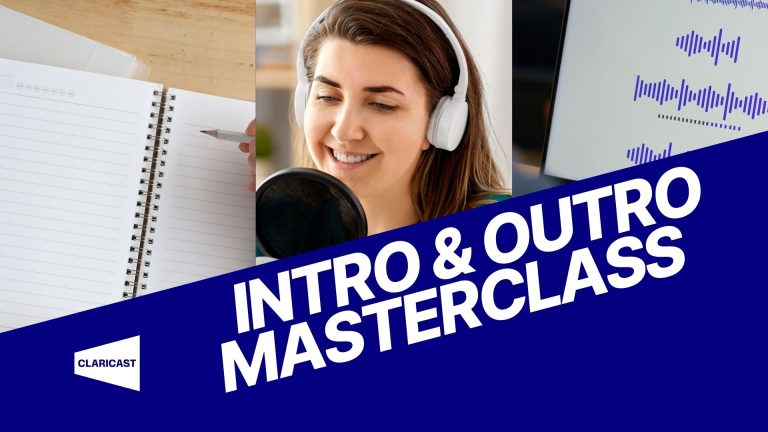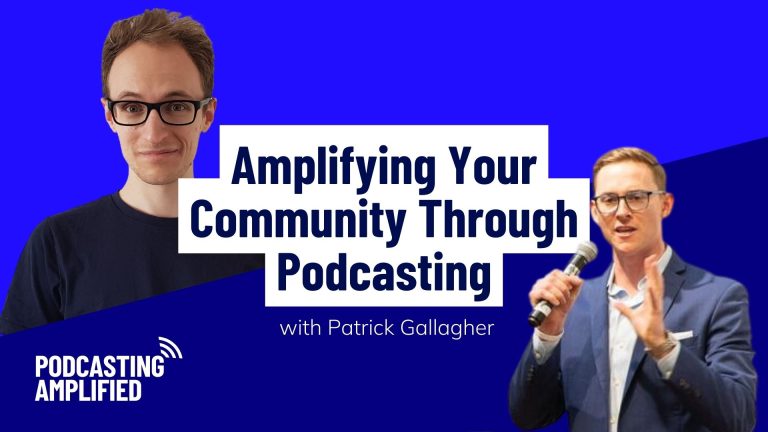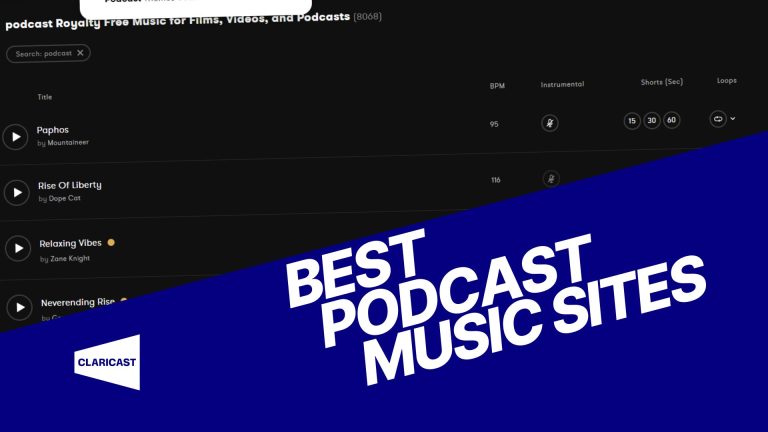Are you just starting your podcast and are looking to buy the right equipment? Or are you thinking about upgrading from your USB microphone setup? Either way, picking a device to record your podcast with can be overwhelming, as there are so many different types out there.
I’m going to clarify the difference between these audio recorders and answer the question of ‘audio interface vs. mixer for podcasting’. I’ll explain to you what these devices do, which one is best for you and your podcast, and provide some recommended products to get you started.
To be clear, none of these devices are required for recording with a USB microphone. If you have a USB microphone, it’s just a case of plugging it directly into your computer. If you want to benefit from the improved audio quality and versatility of an XLR connected microphone though, you’ll need one of these devices.
What is An Audio Interface?
An audio interface is a small box that you plug into your computer. You can plug a microphone (or several microphones) into it, and it will take the audio that your microphone is picking up, boost the level (volume) of it, and convert it into a digital recording on your computer (one file for each microphone).
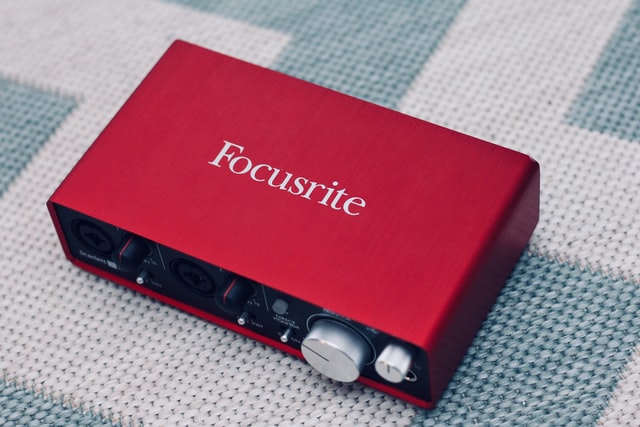
Aside from being a simple converter to record your voice, audio interfaces generally provide a few more functions, such as –
- High-quality ‘pre-amps’ that ensure you’re recording at a high quality
- Individual level control for microphones
- Headphone outputs for monitoring what you’re recording
Audio interfaces start at reasonable prices, are easy to use, and are great for ensuring high-quality audio recordings (providing a quality microphone is also used). However, they don’t record to internal storage and therefore will need to be connected to a computer with a digital audio workstation (audio recording software) installed to record.
What is A Mixer?
A mixer has a similar function to an audio interface, but with a few very distinct differences.
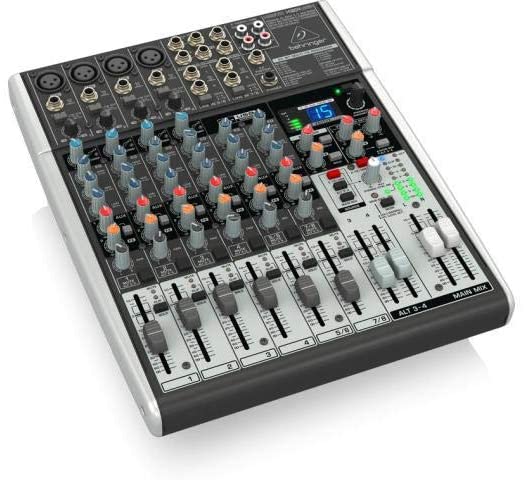
Firstly, as you’ll notice in the above image, they have a lot more controls. That’s because each of the microphone channels can be ‘mixed’ during recording. The on-board controls allow for accurate level adjustment, EQ (tone adjustment) and other effects to be applied to the recordings before they’re saved. This works great for live broadcasts where the audio can’t be mixed after the fact.
Secondly, mixers offer a wider range of available microphone inputs. If you’re recording a 4-person podcast locally, you’ll have plenty of options available that include 4+ mic inputs.
And thirdly, the way mixers save the audio files tends to differ from audio interfaces. Normally, your mixer will output a single audio file that combines all of the speakers together in one file. This can make the podcast more difficult to edit post-recording, if you have multiple speakers. They do sometimes offer onboard recording, though, which allows for recording to an SD card, without the need for a computer.
Finally, mixers tend to be bulkier and more costly than audio interfaces.
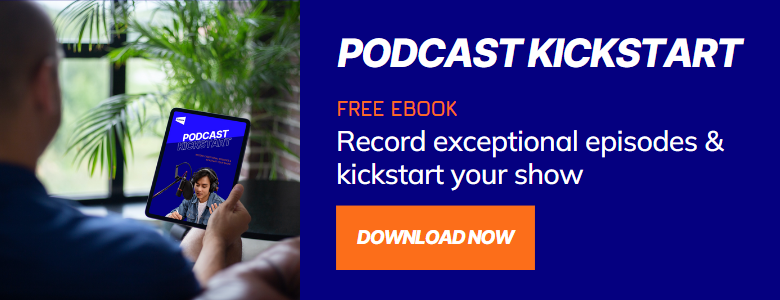
Audio Interface vs. Mixer for Podcasting: The Verdict
There’s no ‘one size fits all’ answer for if you should choose an audio interface vs. mixer for podcasting. However, I can suggest which you may want to consider based on your circumstances –
Consider an audio interface if…
- You want the cheapest way of getting high-quality audio
- You’re able to record while connected to a computer
- You have no need to mix during recording (aside from setting levels)
- You don’t have an advanced knowledge of audio
Consider a mixer…
- You’re recording multiple speakers for live release
- You are recording on-location
- You have a more advanced knowledge of audio
What About Portable Recorders?
A third option is the portable digital recorder. I’ve left this as a final mention as they’re less commonly used than audio interfaces. Portable digital recorders are useful for recording audio on the go. They’re small and some have built-in microphones. They can normally record directly to a computer via a cable, or to their own internal storage. They’re handy for travelling podcasters, but they can cost a fair bit.
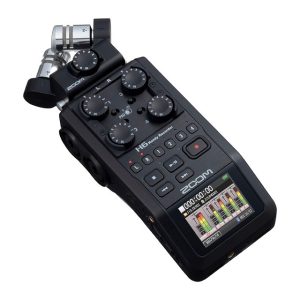
If you’re after a portable recorder, I would go for one that has XLR microphone inputs. This is because the fixed position of the built-in microphones won’t provide you with a fantastic recording.
Recommended Products
Audio Interfaces for Podcasters
- Focusrite Scarlett Solo 3rd Gen
- Presonus AudioBox USB 96
Mixers for Podcasters
- Behringer X1204USB Xenyx
- RODE RODEcaster
Portable Recorders for Podcasters
- Zoom U-24 Handy Audio Interface
Further Reading
9 Podcast Audio Recording Tips for the Best Sounding Podcast


